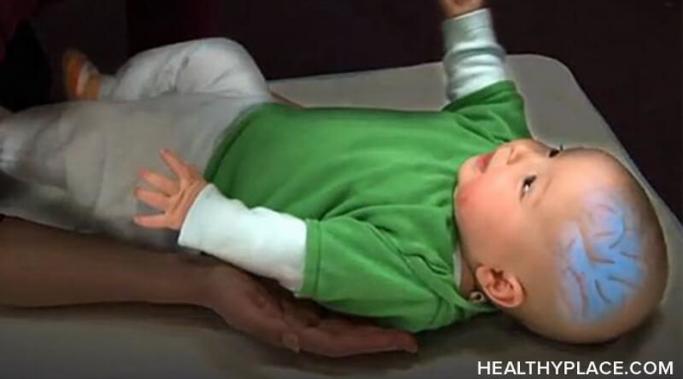Blogs
Katherine Stone suffered from postpartum OCD after the birth of her first child. With treatment, she made a full recovery and decided to provide pregnant women and new mothers with support and help for postpartum depression and anxiety through her blog, Postpartum Progress. Today, it's the most widely read blog on perinatal mental illness.
You may have heard of the five "survival roles" often taken on by alcoholic families--Chief Enabler, Hero, Scapegoat, Lost Child, and Mascot. Sharon Wegsheider-Cruse is credited with identifying these roles within families living with chemical dependency in 1976. I learned these roles in high school when I attended a meeting for children of alcoholics to support a friend. Imagine my confusion when, in the course of the meeting, I began to recognize at least a few of the characters within my own family, even though none of us were chemically dependent. (The survival roles have since been applied to the broader scope of "dysfunctional" families.)
A family is a single, cohesive unit (no matter how loudly some members may protest to the contrary). When part of the family doesn't function as it should, the other parts adapt in an effort to retain or regain that function as a unit. Every member contributes in some way. Unfortunately, even the youngest members of a family take on roles when the need is sensed.
The area of diet and mental illness is a contentious one. I suspect that’s for several reasons:
1. Many alternative practitioners make their living telling people what to eat and they want to believe this will help.
2. Individuals want to believe the treatment is simple, drug-free and something they can control.
3. The placebo effect leads to dramatic anecdotes.
Here's what we know about diet and bipolar disorder.
Angela McClanahan discusses the state of life with Bob, and reacts to a recent comment.
When it comes to understanding Dissociative Identity Disorder, most people get too hung up on the concept of the alternate identity. Identity alteration is widely and mistakenly accepted as the essence of what DID is. And so the two most popular theories about the development of Dissociative Identity Disorder revolve around the existence of alters: the Broken Vase Theory, and the Multiple Vase Theory. Neither are satisfactory explanations for how DID develops and ultimately both theories' inaccuracies stem from the same error: the assumption that early childhood identity is cohesive and intact when in fact it is anything but.
At one job, my boss manipulated and controlled her employees. She tried to win over her employees by becoming overly familiar with us and then using the information to manipulate our actions, even play one employee off another. She obviously manipulated my supervisor, Dean, and after becoming his friend, I found she abused him in hidden ways, too. The signs of workplace abuse made it obvious I needed a new job (Dealing With Verbal Abuse At Work).
It's tempting to think that because we read a list of symptoms for a mental illness, we can diagnose ourselves. We might think that taking a self-test online indicates the presence of an illness, or lack thereof. These things, however, are simply not the case.
Productivity Habits for the Bipolar or Depressed Individual (Part 1)
Many people don't make the best use of their time. If possible, avoid meetings that you are a fly on the wall, having little input. Are the projects you are currently working on more important than this meeting? Can you get the minutes or highlights of the meeting? Most business meetings take twice as long to complete than what is required to get through the materials needed. If you are curious on how much a meeting costs, for every $10,000 of salary, each hour is worth typically $5.95; a salary of $50,000 is worth $29.75 times each person in the meeting. Six people with all the same salary of $50,000 makes each hour worth or costs the company $178.50 per hour. This only includes the meeting time; preparation, photocopying and power point presentations are additional.
If I'd had to win the job of mother to my son on a Survivor-style reality game show, I would have been voted off within the first 6 months. As it is, I've lasted almost 13 years and done okay for the most part. But much of that success has to do with the fact that my child is physically and mentally healthy. In other words, he's not that difficult to parent. Children with autism have special limitations and needs that are bound to make parenting an autistic child an exponentially greater challenge than parenting already is.
Did you read my last post (about keeping your head in the heat of the moment) and feel like telling me to shove it?
Yeah...me too.






